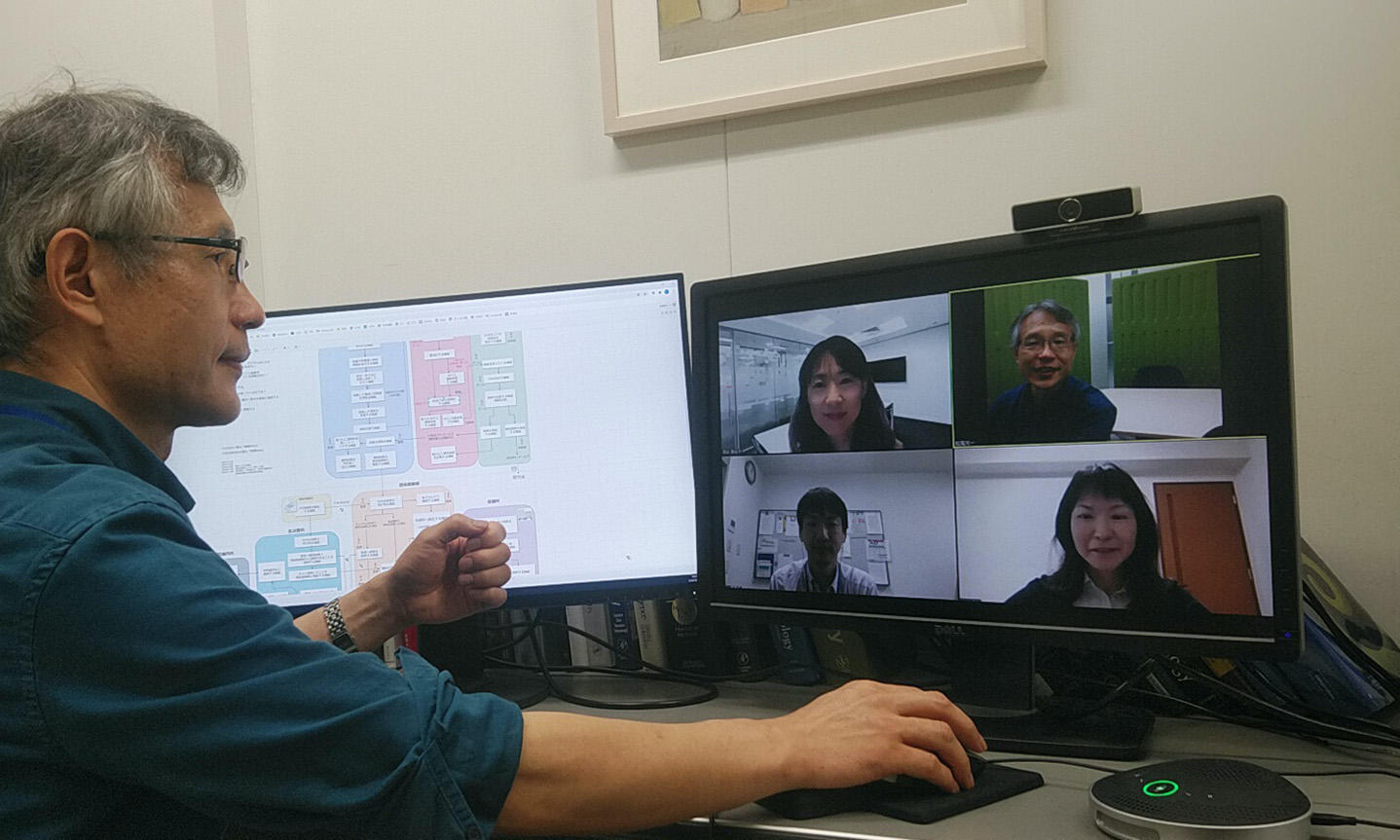KGRI Research Projects for New Coronavirus Crisis: Implementation of a Keio Model to Optimize SARS-CoV-2 PCR Tests through Systems Approach
Security
Summary

In the time of COVID-19 and other potential global pandemic threats, it is critical to tackle these crises with multidisciplinary team efforts, consisting of many different expertise such as medicine, molecular biology, pharmacology, systems engineering, political science, etc. In the first wave of COVID-19, Japan was criticized from the world for its low polymerase chain reaction (PCR) testing rate per population. We identified several factors accounting for this, while trying to expand the PCR testing capacity at our institution.
In early May, Collaborative Research Resources (Core Facility), which is equipped with real-time PCR machines for basic research at the Keio University School of Medicine, was registered as an external clinical laboratory (ECL) to serve as an auxiliary COVID-19 PCR testing site by Shinjuku City Public Health Center. The ECL is located in the School of Medicine, which is next to Keio University Hospital (KUH). In this proposal, we will build a new PCR test system to carry out diagnostic or screening SARS-CoV-2 PCR tests at the ECL, and create a functional link between the ECL and the key sections at KUH, especially, the Clinical Laboratory and the Center for Preventive Medicine, as well as other centers and departments.
To design a comprehensive and effective PCR test system, we use systems approaches of systems engineering: First, we identify "components" (elements/parts) that are central in the system of interest and their relationship, which determine the number of daily PCR tests (whole). Second, we list up concerns and requests of stakeholders, including those who are in administration and regulation, hospital staff, patients, research staff, PCR kit makers etc., and define requirements of the new PCR test system that centers the ECL as a hub. External uncertainty includes national guidelines for COVID-19 testing by the Ministry of Health, Labour and Welfare (MHLW) which get updated frequently, new test kits becoming available, and other. From epidemiological view, prevalence or the prior probability of having COVID-19 should be considered in determining the number of PCR tests performed per day, especially for diagnostic purposes. Furthermore, the PCR test system we propose is aimed for serving the community in a time of crisis such as pandemic, and both the machines and the human resources employed in this effort will have to return to normal daily research activities when a wave of pandemic is over. Therefore, the system needs to be flexible and agile. Third, we design an architecture of the system that expresses functions, organizational structure, data flow, rules, management requirements, etc. The PCR test system we design will be operated in the real world and the architecture will be improved based on the feedbacks and evaluations from the actual operation.
Finally, we will compare our model with those of other institutions in Japan and globally in other countries, and ask whether and how RT-PCR machines usually used for research have been diverted for clinical diagnostic use. What are the characteristic features of a tentative, flexible, and agile PCR system? What is the most rigorous way to calculate the appropriate number of PCR testing per population? We believe that this KGRI research project will answer these questions. Our goal is to build a novel Keio PCR model system, which is not only operational but widely applicable to other institutions in pandemic crises.
SDGs
Project Members
About Project Members, ResearchersNote: ◎ indicates the project leader
| Name | Affiliation | Position | Field of Specialization/Research Interests |
|---|---|---|---|
| ◎MATSUO, Koichi | School of Medicine | Professor | General anatomy(including histology/embryology), Bone metabolism, Developmental biology, Cell biology |
| OKANO, Hideyuki | School of Medicine/Graduate School of Medicine | Professor/Dean | General neuroscience, Nerve chemistry, Nerve pharmacology, Molecular biology, Developmental biology |
| MURATA, Mitsuru | School of Medicine | Professor | Laboratory medicine, Molecular laboratory diagnostics, Laboratory hematology, Thrombosis and hemostasis |
| OKAMURA, Tomonori | School of Medicine | Professor | Preventive medicine, Epidemiologuy, Public health, Health science, Atherosclerosis |
| TORIYA, Masako | Graduate School of System Design and Management | Project Assistant Professor | System design and management, Systems engineering |
| OBA, Junna | School of Medicine | Project Assistant Professor | Oncology, Muitiomics/Big data analysis, Bioinformatics, Dermatology |
| UWAMINO, Yoshifumi | School of Medicine | Instructor | Infectious diseases, Clinical microbiology, Infection control, Laboratory medicine, Mycobacteria |





